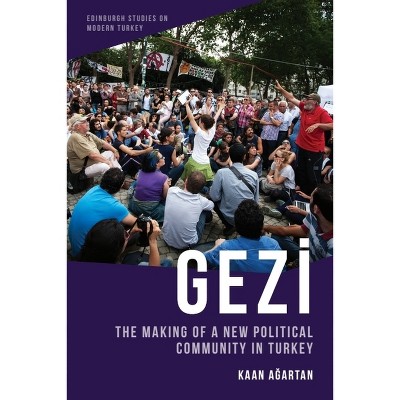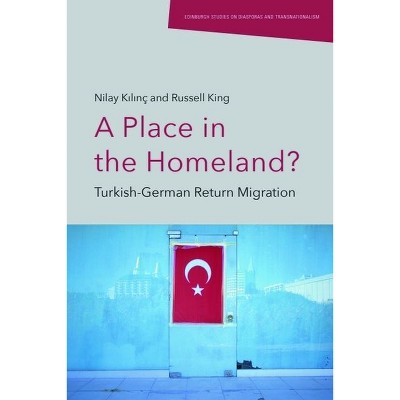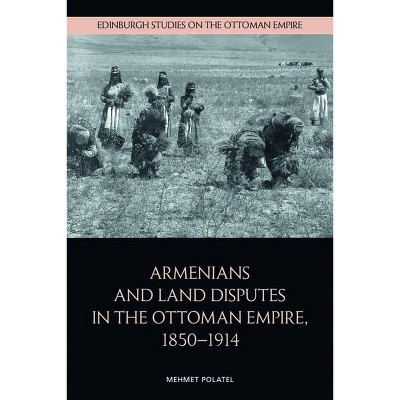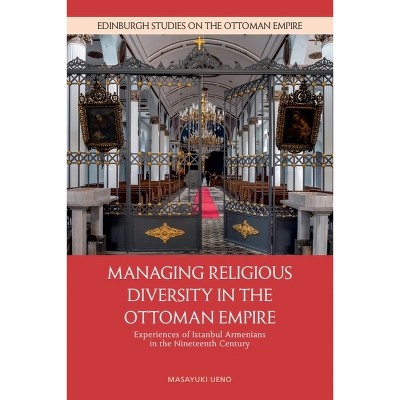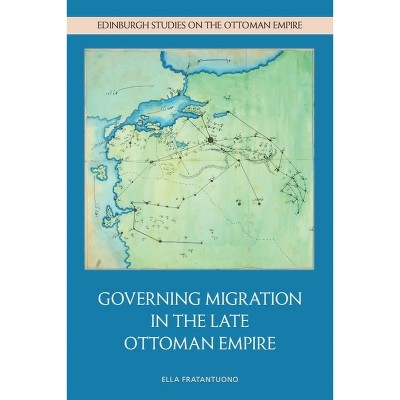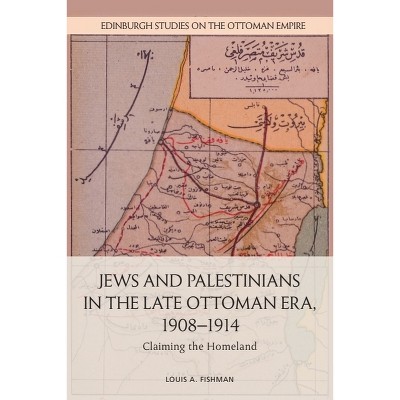Sponsored

The Kurdish Nobility in the Ottoman Empire - (Edinburgh Studies on the Ottoman Empire) by Nilay Özok-Gündoğ & an (Paperback)
In Stock
Sponsored
About this item
Highlights
- This book narrates the rise and fall of Kurdish nobility in the Ottoman Empire from the sixteenth through to the nineteenth century.
- About the Author: Nilay Özok-Gündoğan is Assistant Professor of History at Florida State University.
- 368 Pages
- History, Middle East
- Series Name: Edinburgh Studies on the Ottoman Empire
Description
About the Book
Studies the making and unmaking of the Ottoman Empire's Kurdish nobility
Book Synopsis
This book narrates the rise and fall of Kurdish nobility in the Ottoman Empire from the sixteenth through to the nineteenth century. Focusing on one noble Kurdish family based in the emirate of Palu, a fortressed town in the eastern provinces of the Ottoman Empire, it provides the first systematic analysis of the hereditary nobility in Kurdistan.
The book centres on the crucial moment in the 1840s during which the Ottoman state set out to abolish the hereditary privileges of the Kurdish beys, confiscating their large landholdings and setting the stage for a conflict over the fertile lands of Palu that would last nearly six decades. This tug-of-war between Armenian financiers, Armenian and Muslim sharecroppers, the Kurdish beys and the Ottoman state ended in 1895 with a series of massacres against the Armenian population of Palu. Through exhaustive archival research in an untapped body of sources, this book sheds light on the impact this conflict-filled process had on the intercommunal relations in the locality. In doing so, the author brings the voices of Armenian and Kurdish commoners to the fore and highlights the important roles that they, too, played in the local struggles and wider changes in governance.
As the first study to present the dissolution of the Kurdish nobility using a social history lens, the book gets to the heart of the historical transformations that changed Palu from a diverse and economically affluent town into an ethnoreligiously homogenised, culturally conservative and economically deprived place. Peppered with vignettes and stories culled from a wide range of archival sources, the author presents a cohesive narrative of the region's socio-economic and political history between 1720 and 1895, situating developments taking place in the small province of Palu within the larger developments in the Ottoman Empire and the world at large.
From the Back Cover
Studies the making and unmaking of the Ottoman Empire's Kurdish nobility This book is a study of the rise and fall of Kurdish nobility in the Ottoman Empire from the 16th to the 19th centuries. Focusing on one noble family based in Palu, a fortressed town in Kurdistan, the book provides the first systematic, longue durée analysis of the Kurdish hereditary nobility in the Ottoman Empire. The author offers a fresh perspective on what enabled the Kurdish nobility to survive for so long; the dynamics of Ottoman-Kurdish relations on the ground; the processes that brought the privileged status of the Kurdish nobles to an end; and the consequences of the destruction of the Kurdish nobility. The abolishment of the Kurdish begs' hereditary privileges and the confiscation of their lands triggered a 5 decade-long conflict between begs, Armenian financiers, Armenian and Muslim sharecroppers and the Ottoman state over the fertile lands of Palu. The Kurdish Nobility in the Ottoman Empire examines the escalation of the intercommunal conflict in Palu within the context of the changing careers - and diminishing wealth and authority - of the Palu begs and the growing hostility between them and the district's Armenian population. Nilay Özok-Gündoğan is an Assistant Professor in the Department of History at Florida State University.Review Quotes
[A] scholarly masterpiece that deconstructs and reconstructs conventional ways of viewing Kurdish and Ottoman history--Anoush Tamar Suni, The Promise Armenian Institute "New Perspectives on Turkey"
[C]ombines meticulous archival research with a profound theoretical sophistication. This combination results in a work that considerably advances our knowledge of the dynamics that shaped the social and political evolution of Ottoman Kurdistan.--Djene Rhys Bajalan, Missouri State University "Kurdish Studies Journal"
This empirically rich and theoretically sophisticated book addresses multiple complex topics, including ongoing debates about the existence of hereditary, de jure nobility in the Ottoman Empire, landholding patterns, land privatization, and the long-durée effects of changes in landholding regime on inter-communal relations.--Sabri Ates, Southern Methodist University "Journal of the Ottoman and Turkish Studies Association"
This book is enriched by the author's impeccable efforts to link social, economic, environmental, military, domestic, and foreign political factors. It is a must-read for anyone working on the eastern provinces of the Ottoman Empire, on Ottoman imperial rule, the Tanzimat, privatization of property, and Kurdish and Armenian history.--Dzovinar Derderian, University of California, Berkeley "Review of Middle East Studies"
This path breaking, meticulously researched, and beautifully written study transforms how we think about the place of Kurdistan in Ottoman history. Özok-Gündoğan's compelling account of the shifts in Ottoman governance includes and acknowledges the centrality of those actors--Kurds and Armenians--who are often left out of mainstream narratives of Ottoman history without bowing to post-imperial nationalist histories. A major contribution on so many levels, this book shakes up how we understand Ottoman nobilities, ethno-religious violence, and the making of the modern state, and should be read by specialists and non-specialists alike.
--Janet Klein, University of AkronAbout the Author
Nilay Özok-Gündoğan is Assistant Professor of History at Florida State University. Her publications include articles in the Journal of Social History, the International Journal of Middle East History, Comparative Studies of South Asia, Africa and the Middle East and New Perspectives on Turkey.
Shipping details
Return details
Trending Non-Fiction






